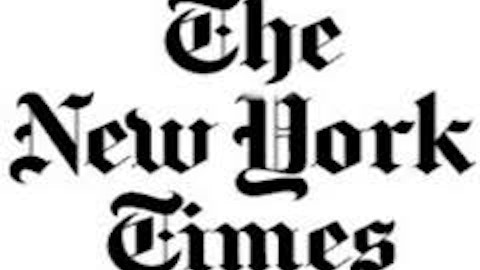
The P/E ratio is calculated as a stock’s current share price divided by its earnings per share (EPS) for the last 12 months. In other words, most of the P/E ratios you see for publicly-traded stocks are an expression of the stock’s current price compared against its previous twelve months’ earnings. Companies with a high P/E ratio are typically growth stocks, but their relatively high multiples do not necessarily mean their stocks are good buys for the long term. In fact, it is sometimes the case that those companies with high P/E ratios are overvalued. The following are four examples of firms with high P/E’s that aren’t worth your hard earned money.
1. Rackspace Hosting, Inc. (NYSE:RAX) The market sentiment on the tech sector is currently negative (take a look at recent declines and negative commentary on Apple and Google). In this sector, I see Rackspace Hosting, Inc. (NYSE:RAX) as overvalued. Rackspace Hosting, Inc. (NYSE:RAX) offers outsourced server management capabilities and last year, it posted an impressive 30% jump in sales to $1.3 billion compared with 2011, and is expected another 25% in 2013 to roughly $1.65 billion. This puts the P/E ratio at just over 60. Some analysts figure this high-growth platform is worth a pretty robust 10 times projected 2013 EBITDA, and with a price per share of $45 are saying ‘hold.’
The catch is that Rackspace Hosting, Inc. (NYSE:RAX) is ill-prepared to match some of the bigger companies that are taking command of cloud storage. These companies such as Google and Microsoft have already announced their intention to get into the outsourced server management. Both firms have a large amount of cash to buy the capital and manage it cheaper than Rackspace Hosting, Inc. (NYSE:RAX). This will immediately lead to a loss of market share, and hits to the bottom line of Rackspace Hosting, Inc. (NYSE:RAX). Growth will continue to slide not warranting a higher P/E. Expect a price plateau and then a cliff once their competitors get fully up and running.
2. Amazon.com, Inc. (NASDAQ:AMZN) is another stock with high P/E ratio that even insiders are selling. It has a market cap of $81.4 billion and a P/E ratio of 94.23; yet, back in December, Steven Kessel sold 3,500 shares at $182. Mark Onetto also sold more than 50,000 shares at prices ranging from $194.51 to $198.09 In January. Director Patricia Stonesifer also sold 5,000 shares in total at around $193 per share at the beginning of January. It seems that these insiders made the right decision as Amazon.com, Inc. (NASDAQ:AMZN) dipped below $200 at the beginning of the year. It’s pretty interesting while not knowing about the recent earnings miss they are all on the front lines and know how the company is performing.
These insider sells are a great sign that future woes are ahead as well. When the ship is on fire and the captains are bailing off you better follow suit. Amazon.com, Inc. (NASDAQ:AMZN) faces competition from giants like Wal-Mart and Google on the shopping side to the selling side in their marketplace from firms like eBay.
3. American International Group Inc (NYSE:AIG) has also seen some sizable gains in 2012 that has begun to slow in 2013. The stock is also considered expensive in terms of P/E ratio. Insiders have sold more than $25 million in shares over the past month. What is more, consensus earnings estimates for and FY2013 and beyond have fallen sharply over the last three months and revenue growth is projected to be less than 40% in FY2013. Analysts are hardly positive on the stock recently. UBS, Northland Securities and FBR Capital have issued “Neutral” or “Market Perform” ratings on the shares in the last few months as earnings estimates have fallen. With decreasing projected earnings estimates for 2013 and beyond, huge insider selling activity, along with an expensive P/E ratio, you officially have yourself a recipe for disaster. Do yourself a favor and skip over this one.

